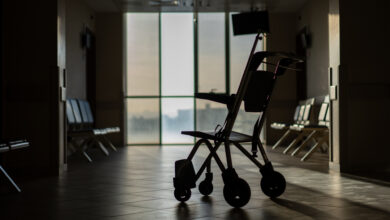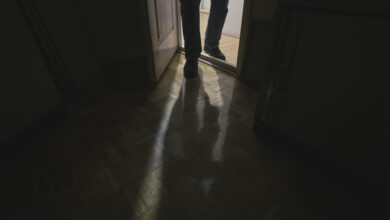Carer issues

Carers, cognitive decline and complex health issues can make managing the elderly in an emergency department presentation a difficult situation.
A recent study has zoned in on the interactions between emergency nurses and older patients’ family and carers, as an increasing number of elderly people are entering Australian hospitals via emergency departments.
Prone to cognitive decline and the common presence of complex health issues, elderly patients who present to the ED generally require more immediate attention, have longer stays and are more likely to be admitted.
A team of researchers from the University of Technology, Sydney surveyed 27 nurses from a 550-bed emergency department in Sydney to explore experiences and expectations with family and carers accompanying older patients.
Published in the Nurses’ experiences and expectations of family and carers of older patients in the emergency department report, results suggested that “unvoiced and potentially unrealistic expectations” between ED nurses and family are resulting in conflict.
The study found carers were deemed to be helpful if they saved the nurses time; and obstructive if they cost time. Frustration was experienced with carers who invested little time with the older patient. Equally as testing were carers that were regularly present but demanded too much time with the ED nurse.
According to Robyn Gallagher, associate professor of chronic and complex care, Faculty of Health, University of Technology, Sydney, it was clear that nurses were stressed and worried about getting things done in a timely way.
“[Nationally] there has been a directive from the government that everyone should be in and out of the emergency department in four hours … that’s not going to work for older people that might have three different illnesses at the same time.”
Describing nurses expectations as “pretty tough”, Gallagher pointed out that in most cases, this was due to genuine concern about the rights of the elderly patients.
“Nurses did not tolerate family getting in the way of them communicating with their patients properly,” she said.
“It was very gratifying to find out how concerned nurses were with that, and that the older person was being heard and supported.”
In one instance, a nurse involved in the study reported the daughter of an elderly patient was adamant that she was the guardian of the patient – and all questions should be directed to her rather than the patient.
Nurses viewed situations like this as an “infringement on both the patient’s rights and the nurse’s duty to involve the patient”, according to the report.
Liz Cloughessy, executive director of the Australian College of Emergency Nursing believes that nurses do work very hard to meet the needs both of the patient and their family or carers; however the ED is simply not designed for the elderly.
“It’s busy, it’s noisy, there is a lot of light, movement and increased stimulation. The actual environment itself is not designed for the older person – especially someone that is a little bit confused or a little bit frail,” she said.
Cloughessy confirmed that throughout NSW most bigger hospitals have aged care nurses working with the emergency team, while medium-sized hospitals generally had access to aged care consultants.
“We refer to them to come and see the elderly patient and do a determination on their home, cognition and where they are at, and we value their opinion in helping us to determine pathways we will take.
“This is a very important and heavily funded initiative.”
Gallagher agrees, suggesting what’s needed is specialist aged care nurses on rotating shifts. She also suggests that ED nurses require positive leadership role models.
“Nurses look up to senior nurses like educators and consultants. I think if those nurses behaved really positively then other people would model that.”
Gallagher says one of the next steps will be to develop brief workshops for emergency nurses on how to work with older people.
Email: [email protected]





